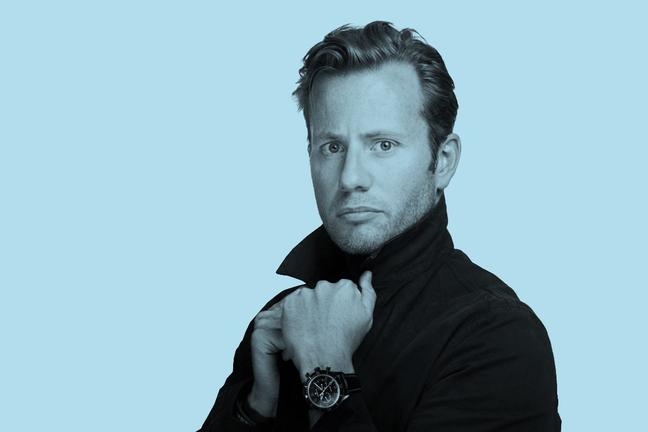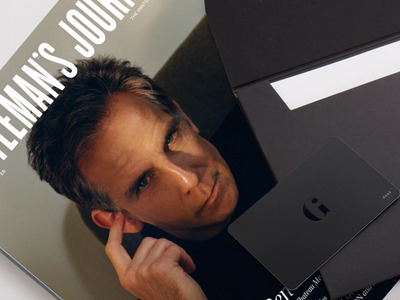Six successful businessmen reveal the buzzwords they hate
From the founder of mobile marketplace Depop to the Executive Vice President of Aston Martin, we ask six top businessmen which buzzwords they wish would buzz off
Let’s synergise! Business buzzwords, I think we can all agree, are the worst. Whether you’re thinking outside the box, taking ownership of a problem, or circling back with the team, they are phrases to raise eyebrows and curl toes. Whatever happened to speaking normally? Is it impossible, in these jargon-jumbled times, to reach the top without talking like a business handbook?
As it happens, no — it’s not. And we’ve rounded up six of Britain’s best businessmen to prove it. From the founder of mobile marketplace Depop to the Executive Vice President of Aston Martin, these half dozen captains of industry have developed apps, refreshed fashion and revolutionised struggling sectors — without a buzzword in sight. But which buzzwords bug them the most?
Justin Hall, CEO of Pantherella, hates “At the end of the day”

It’s been over 135 years since the Hall family started making socks. Justin Hall, in fact, is a fifth generation sock-maker — and the man in charge of ensuring Pantherella’s smooth, natural fibre, extra comfortable collection doesn’t need darning. And he’s doing a fine job. But there’s one phrase he won’t tolerate at Pantherella’s Leicester headquarters…
“My pet hate phrase is: ‘At the end of the day’,” says Hall. “It may be an easy phrase to find yourself using, but it’s essentially lazy. There are many days that end and, of course, the world carries on, so clearer guidance or context should be given. For example, ‘at the end of the day, we just need to finish the order to meet their deadline’. The effect of using this phrase as a way of reasoning sometimes means the importance of a task or activity is missed.”
Tom Broughton, Founder and CEO of Cubitts, can’t stand “Consumer”

Tom Broughton, the founder of Cubitts – an emerging new challenger in Britain’s bustling specs and sunglasses market – has an eye for business. When we interviewed the entrepreneur last year, he told us that he always tries to be “decent and honest with [his] customers, with fair pricing, and never up-selling to turn a quick buck”. There’s no attempts at pulling wool over his customers’ well-appointed eyes — and it’s a level of uprightness you can also see reflected in Broughton’s language.
“My least favourite buzzword would have to be ‘Consumer’,” offers Broughton. “It’s used relentlessly as a way to describe customers, clients, citizens, human beings. I find it depressing and disparaging. It transports me to a dystopian view of the future, where we’re intravenously wired into bleeping machines that relentlessly feed us sustenance and serotonin. Although with smartphones, we’re arguably already there…”
Simon Beckerman, Founder of Depop, won’t tolerate “Influencers”

Depop is almost a decade old. When the social shopping app was launched in 2011, founder Simon Beckerman wanted to create a more mobile-focused marketplace — beating the likes of eBay and Gumtree to a dedicated app-based platform. But, despite the businessman owing a lot to smartphone enthusiasts around the world, he’s got a buzzword bone to pick with one phrase in particular.
“Influencers!” says Beckerman. “What is an influencer? You’re an artist, a designer, a photographer, a model — the list goes on. It makes no sense to me to call someone an influencer, just say what they do!”
Aron Gelbard, CEO and co-founder of Bloom & Wild, despises “Pivoting”

When Aron Gelbard co-founded the revolutionary flower delivery startup Bloom & Wild, he had a clear vision. And, although the brand has diversified in the years since, he’s always stayed true to that original idea. But, he notes with his least favourite buzzword, not all new businesses stick to their bouquets in quite the same way.
“Pivot is a word a lot of start-ups use,” Gelbard laments. “But, in practice, I think running a start-up is more about constantly gathering customer feedback and using it to make your offering more relevant — not creating grand changes in strategy. Bloom & Wild has evolved a lot over the past six years, however, none of these have been ‘pivots’ — they’ve all been gradual evolutions in response to day to day customer feedback.”
Marek Reichman, Executive Vice President of Aston Martin, doesn’t like being told to take emotions out of meetings

When Marek Reichman started at Aston Martin in 2007, he ushered in one of the most prolific periods of new model introductions the British marque had ever seen. With cars including the Rapide S, Vanquish, Vulcan and DB11 springing from the nib of his pen, Reichman is a key cog in the Aston Martin machine — and his least favourite buzzword relates directly to his design process.
“My pet hate phrase is: ‘Can we take the emotions out of this meeting?’ — because the job of a designer is all about emotion.” We’re glad, too. If it weren’t for Reichman’s emotional design process, we wouldn’t have seen such a bold, beautiful evolution of the historic ‘DB’ bloodline.
George Bamford, Founder of Bamford Watch Department, hates the phrase “It’s alright for you”

George Bamford initially founded Bamford Watch Department to make his own watch more exclusive and individual. Many years — and sought-after products — later, the business is a great, ticking success. But Bamford keeps coming across a particular phrase, and one which irritates him above all others…
“For me, I always want to strive forward and push forward,” says Bamford. “My personal pet hate is when someone says ‘It’s alright for you’. No matter what you do for business, if you step out and create something, that’s absolutely amazing. In Great Britain, there are 4.8 million family-owned businesses, so when people say ‘It’s alright for you’, it takes away from how they are pushing business forward.”
Want to learn more business commandments? Here’s a quick guide to global business etiquette…
Join the Gentleman’s Journal Clubhouse here.

Become a Gentleman’s Journal Member?
Like the Gentleman’s Journal? Why not join the Clubhouse, a special kind of private club where members receive offers and experiences from hand-picked, premium brands. You will also receive invites to exclusive events, the quarterly print magazine delivered directly to your door and your own membership card.


